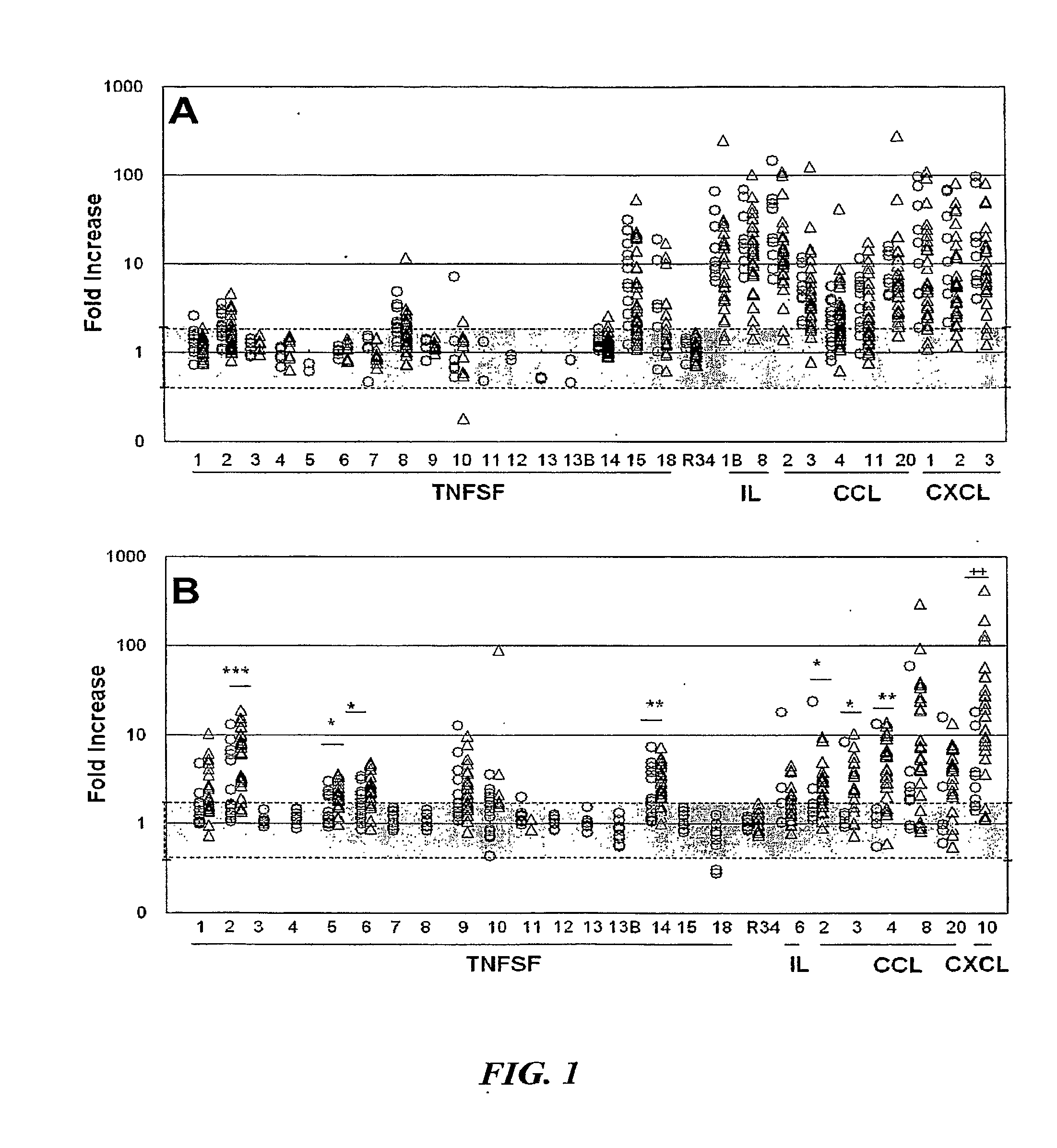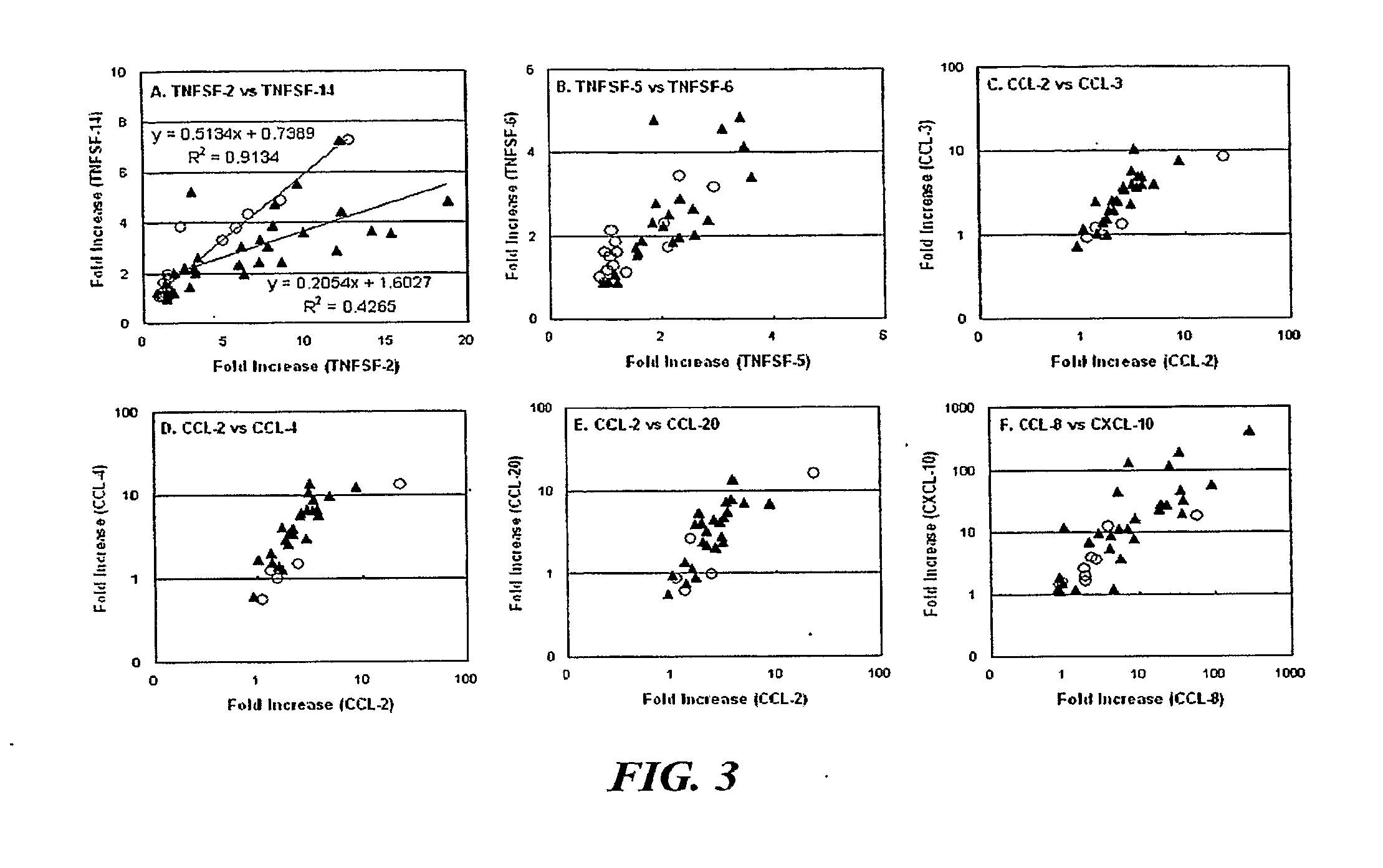Enhanced t cell receptor-mediated tumor necrosis factor superfamily and chemokine mRNA expression in peripheral blood leukocytes in patients with crohn's disease
a t cell receptor and tumor necrosis factor technology, applied in the field of enhanced t cell receptor-mediated tumor necrosis factor superfamily and peripheral blood leukocytes in patients with crohn's disease, can solve the problems of limited therapeutic options for severe cd cases refractory to standard therapies, limited anti-inflammatory cytokines, and inability to express autoantibodies
- Summary
- Abstract
- Description
- Claims
- Application Information
AI Technical Summary
Benefits of technology
Problems solved by technology
Method used
Image
Examples
Embodiment Construction
[0055]The present disclosure relates to the use of differential mRNA transcription patterns in leukocytes in response to specific cellular stimuli in assessing whether CD patients are good candidates for specific therapies, such as therapy with Remicade®. The present disclosure also relates to the use of such differential transcription patterns in assessing whether therapy administered to a CD patient, such as therapy with Remicade®, is effective. The present disclosure also relates to the use of such differential transcription patterns in screening candidate agents for use in treating CD. The present disclosure also relates to the use of such differential transcription patterns in evaluating the state of CD in patients over time and monitoring the progression of the disease.
[0056]As described above, the pathology of CD may be related to the functioning of the FcR or TCR in the immune cells of a CD patient. In order to further assess the possible role of the FcR or the TCR in the di...
PUM
| Property | Measurement | Unit |
|---|---|---|
| Ratio | aaaaa | aaaaa |
| Level | aaaaa | aaaaa |
Abstract
Description
Claims
Application Information
 Login to View More
Login to View More - R&D
- Intellectual Property
- Life Sciences
- Materials
- Tech Scout
- Unparalleled Data Quality
- Higher Quality Content
- 60% Fewer Hallucinations
Browse by: Latest US Patents, China's latest patents, Technical Efficacy Thesaurus, Application Domain, Technology Topic, Popular Technical Reports.
© 2025 PatSnap. All rights reserved.Legal|Privacy policy|Modern Slavery Act Transparency Statement|Sitemap|About US| Contact US: help@patsnap.com



